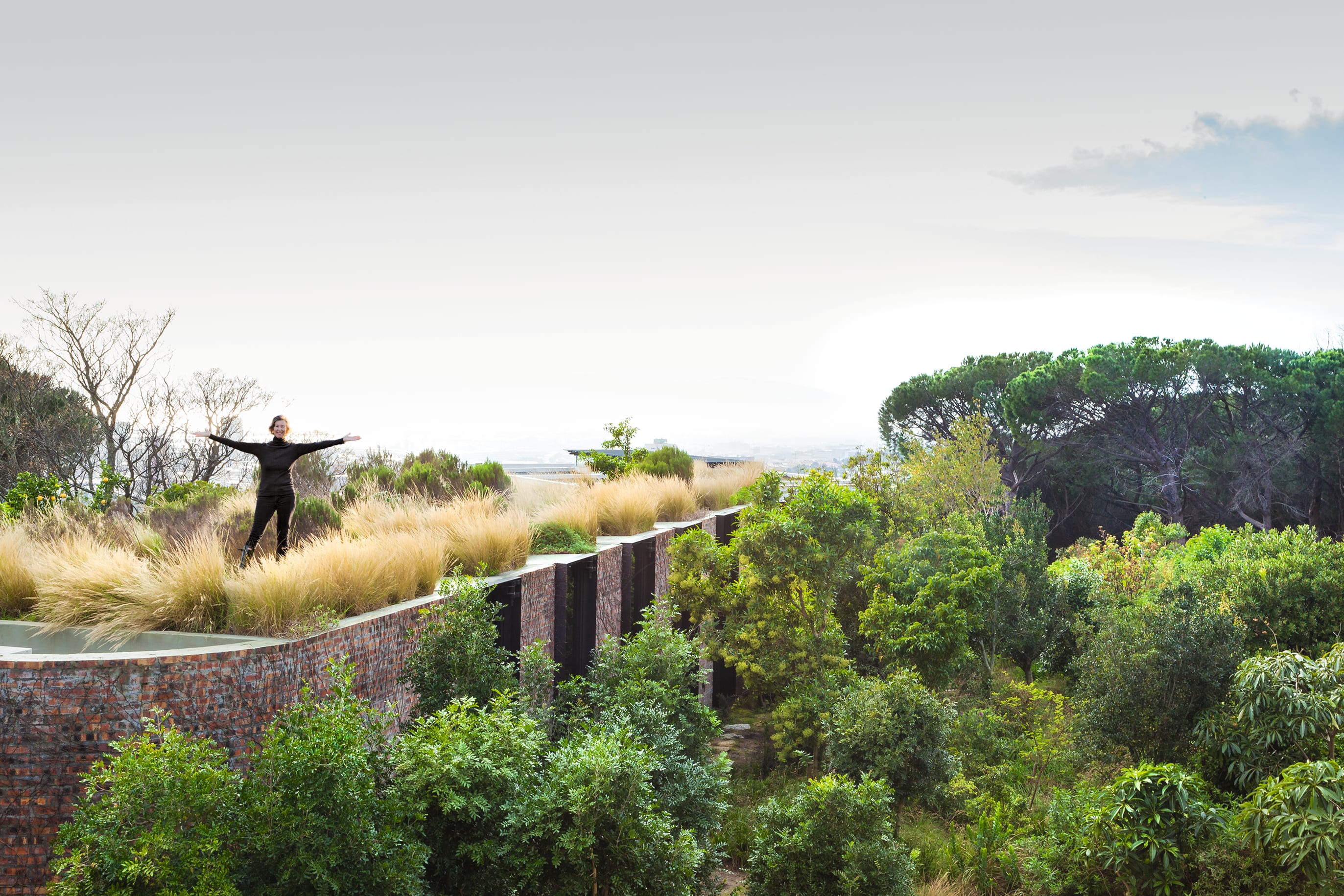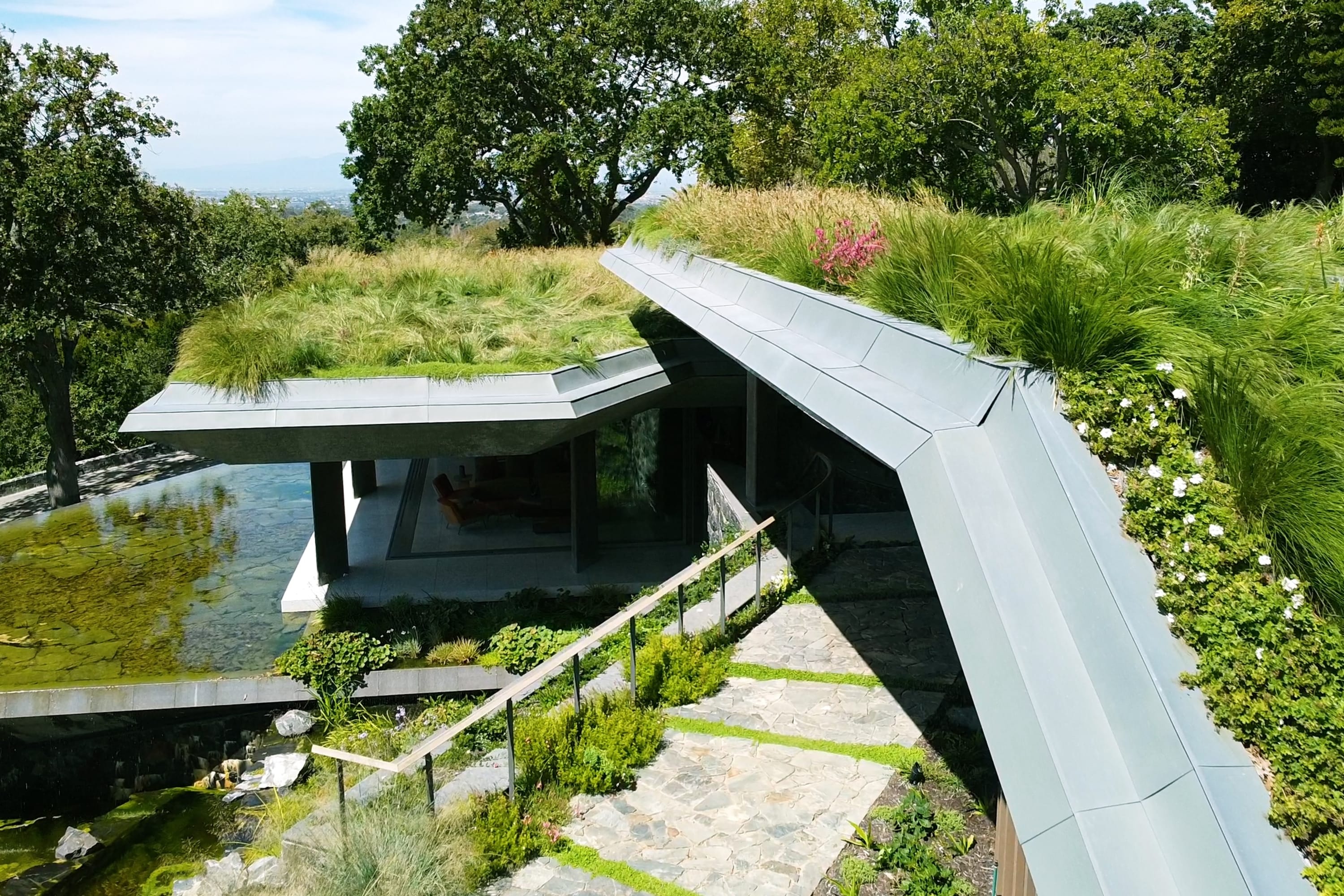
Image courtesy of Heidi Bertish for Franchesca Watson
The garden at Collegio alla Querce, Auberge Resort Collection’s newest property, is a series of tiers. The hotel is a 25-minute walk from Florence's Duomo, but feels a world away, largely because of the ancient olive groves and country villas in the hills behind the hotel. The higher you climb, the less formal the garden becomes. There’s a sleek pool on one terrace, a bosco — Italian for “forest” — with charming nooks and tables on another.
Renowned garden designer Franchesca Watson is the magic behind Collegio’s outdoor space. The project took 10 years, but as soon as you set foot on the property, you’ll see it was worth it. She’s designed sophisticated, welcoming gardens that respect the land — and the rules of the Italian authorities.
Franchesca, who co-owns the Watson Pellacini garden design studio, has designed gardens for sprawling estates in Umbria and modern homes in Cape Town, five-star hotels around the world and restored farmhouses in the Karoo. Regardless of the project, it’s clear she was meant for this work.
“I can meet an old client in the supermarket and I won't remember their name,” she said, “but I will remember practically everything about their garden.”
Learning the trade




One of Franchesca's projects, in Harare, Zimbabwe
When Franchesca was growing up in Durban, South Africa, she wanted to be a ballet dancer. She was accepted into a prestigious ballet school, but before she could enroll, she shattered her foot in an accident. Pointe was out of the question.
“I had to rethink,” she said. “I had a bit of a crisis because I didn't know what I was going to do with my life.”
Her dad sent her to typing college, and she eventually was recruited to work for Sun City Resort, a nearby hotel founded by Solomon Kerzner. (Kerzner would eventually go on to found Kerzner International, which owns One&Only, SIRO and other hotel groups.) While there, Franchesca fell in love with the hotel’s gardens, which were helmed by Patrick Watson.
“ I'd walk around with him and say, ‘Why are you doing that?’ And probably irritated him half to death,” Franchesca recalled.
Eventually, Patrick urged her to study gardening. She was sold, and went to study horticulture at Cape Peninsula University of Technology, in Cape Town. Her father was not pleased.
“I'm not having my daughter go to a trade school,” he said at the time.
Franchesca’s father refused to pay for her schooling, but she had saved enough money to pay her own tuition. She was one of three women in the course, which had only begun accepting females three years earlier.
“ The problem that women had then was they didn't know about these options,” Franchesca said.
Teachers, nurses and secretaries were a few of the more acceptable professions. At the time, women still went to finishing schools. Franchesca didn’t mind; she knew what she wanted to do.
“I want to do garden design. That's where I'm going,” she told her father. “Every choice I made, I aimed that way.”
A budding career

Franchesca designed a garden pavilion for a famous cook in Cape Town
After school, Franchesca won a scholarship to work for the city. She got experience in every department: floristry, plant propagation, trees, golf courses, road verges, design. Hers was a holistic, broad education. The first turning point in her gardening career came when she was designing for a demanding, wealthy older woman — her first international client.
“ She had beautiful taste,” Franchesca said of her client. “And she was quite daunting.”
There was a corner of the woman’s garden that Franchesca couldn’t quite crack. A meeting was called to discuss. The client kept nitpicking; Franchesca grew frustrated.
“I tell you what I would do if it was my garden and my house,” Franchesca said. The woman sat back, and responded, “That's what I wanted to hear. That's what I'm paying you for: your proper opinion.”
After that, the once demanding woman trusted all of Franchesca’s suggestions.
“Clients love that because they feel they're getting an inside view,” Franchesca added. “It's a nice way of telling them they're not quite on the right track.”
The wisdom of nature




Images courtesy of Collegio alla Querce and Heidi Bertish for Franchesca Watson
Part of the goal at Collegio was respecting the property's natural environment, on the cusp of the Tuscan countryside and Florence’s ancient streets. When Franchesca begins a new project, the first thing she does is listen. Although a client may be “environment-oriented,” she said, they may not have the language to express their wants. Franchesca listens intently to discern clues and ask clarifying questions, so she has all the necessary tools to bring their vision to life. Then, she gets a feel of the land.
“There's this sort of pattern to the landscape,” she said. “I'm trying to fix in my head what that landscape means to me, and it's almost an instinct or a smell or an emotion.”
The rolling hills of Umbria, for instance, require a garden that is similarly curvaceous and organic: smooth lines, femininity, warmth. She also consults experts to learn which plants can naturally grow in a given destination.
Today, Franchesca lives in a restored home behind Table Mountain, in Cape Town. She has two gardens: one in the front, and one in the back. She loves to bring clients there to show them the different styles they could explore: something a bit more formal, or something on the wilder side.
Her gardens are filled with big tropical plants, bright orange dahlias and seasonal crops — cabbage in the winter, tomatoes in the summer, sweet corn in the spring, lettuce all year. A garden, Franchesca says, is alive.
“It's like people — people are never finished, they're constantly changing,” she said. “ Different conditions affect us differently, and plants are exactly the same.”
Nature has taught Franchesca many things during her decades of designing gardens around the world. Humility, for one — and forgiveness, and flexibility.
“You have to relinquish some of the control. You think you can control things and make them perfect,” she added. But alas, “ It's not always like that.”
